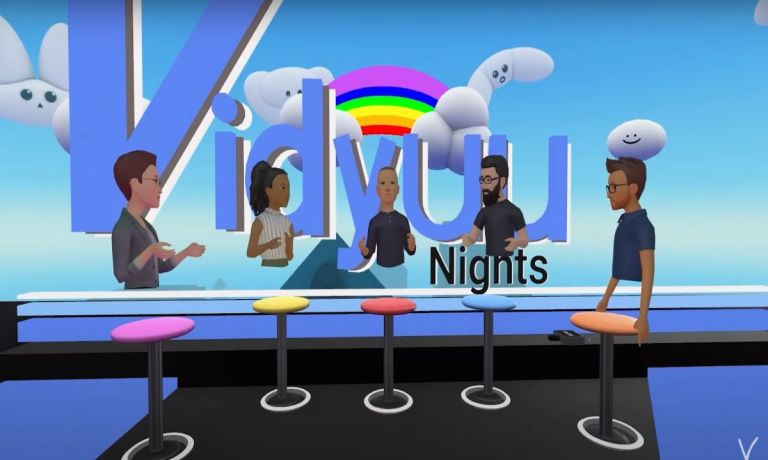Meta Opens Its Metaverse Platform to Payments, and It Doesn’t Come Cheap

Meta is rolling out a payments tools for creators of virtual mini-worlds and communities in its Horizon Worlds metaverse platform.
It won’t be cheap.
For creators setting up shops in the social media giant’s version of the immersive, 3D virtual realities — which CEO Mark Zuckerberg has said he believes are the future of social media — the fees could run to nearly 50% after combining platform and sales fees.
See also: PYMNTS Metaverse Series: How Meta Will the Metaverse Really Be?
The firm said it is charging a 30% platform fee for sales in its Meta Quest virtual reality (VR) platform — formerly known as Oculus, which also makes some of the most popular VR headsets needed for the full metaverse experience.
In Zuckerberg’s monetization announcement Tuesday (April 12), it was revealed that the company will charge a 25% sales fee in Horizon Worlds. Combine the two — 30%, plus 25% of remaining 70% — and Meta will be raking in 47.5% of the profits on virtual goods and services.
It’s worth noting that Meta and Zuckerberg have harshly criticized the 25% fee Apple charges on its App Store.
While Horizon Worlds is only available on Meta Quest, the company plans to bring it to other platforms, a spokesperson told Business Insider, noting that the platform fee “won’t always be going to Meta.”
Read more: What’s a Metaverse, and Why is One Having a Fashion Show?
By contrast, the most popular blockchain-based metaverse, Decentraland, charges a flat fee of 500 MANA — the cryptocurrency token used for all payments — to mint NFT wearables and other goods on its platform. That’s $2.16 as of Tuesday (April 12). The MANA fee is per item, so you’d pay that to mint a collection of a specific pair of virtual sunglasses, for example, not per sale.
In addition, there is a 2.5% fee for selling items in the Decentraland Marketplace.
Payments Support Creativity
While Meta’s Horizon Worlds have a very minimal number of users at the moment — it only opened to the U.S. and Canadian 18-plus public on Jan. 13 — there’s a reality that a Meta metaverse has a huge advantage, in that it can presumably nudge the company’s 2.3 billion Facebook users onto its platform.
“Creator monetization, I think, is really important, because you all need to be able to support yourself and make a good living building these awesome experiences that people can have,” Zuckerberg said on a virtual panel with several creators. Along with in-world payments, the company is launching a fee-free Horizon Worlds Creator Bonus program, with goal-oriented sales targets leading to rewards.
You may also like: PYMNTS Metaverse Series: The Brands Are There. Will Eyeballs Follow?
In-world purchases, he said, are a part of the “commerce equation … that we’ve wanted to get to for a while.”
But it’s an important one, he said. As Meta builds out Horizon Worlds’ capabilities, “the whole economy around it needs to work. It’s a really big focus for the company and for me personally,” Zuckerberg noted.
It isn’t a full launch, as the platform is being tested with a handful of creators at this point. But it’s an important experiment not just from a payments perspective, but in terms of what sells, Zuckerberg said.
He added that he thinks what sells “in these digital products is [going to] end up being a little bit different from what you’d expect from the physical world. So, it requires a lot of experimentation and creativity from the people who are building the worlds and building these experiences.”
That will also shape the payments tools Meta builds, he said. “We’ll see what resonates with the people using the worlds and then we’ll build the next round of tools based on that.”
That won’t just be virtual products, he added. Noting that while some developers will be selling virtual products, others will be selling access to worlds, doing sponsorships or streaming content.
“We just want to make sure that we give you all the tool set,” Zuckerberg said.